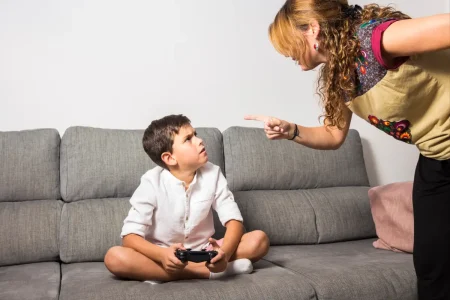The digital age has ushered in an era of unprecedented access to information, transforming how individuals explore sensitive topics like sexuality. A study conducted by Peachy, Australia’s largest adult toy store, analyzed Google search data to gauge the sexual curiosity of different US states, revealing intriguing patterns and highlighting the role of the internet as a primary source of information about sex. The study ranked states based on the frequency of searches for sexually explicit terms and questions, offering a glimpse into the private inquiries of individuals across the country. The findings underscore the limitations of traditional sex education and the growing reliance on online resources, particularly in regions where open discussions about intimacy remain taboo.
Utah, often associated with conservative social norms due to its large Mormon population, emerged as the most sexually curious state, scoring a perfect 100 in the study. This seemingly paradoxical result highlights the tension between cultural expectations and individual curiosity. While public discourse around sex may be limited in such environments, the anonymity of the internet provides a safe space for individuals to explore their interests and seek answers to questions they might be hesitant to ask in person. The study reveals a high volume of searches in Utah related to topics like BDSM, polyamory, and voyeurism, suggesting a desire for information that goes beyond traditional notions of sexuality. This discrepancy between public conservatism and private exploration underscores the importance of comprehensive sex education that addresses a wider range of sexual practices and preferences.
New York, known for its diverse and sexually progressive culture, ranked second in the study with a score of 96.12. The city’s vibrant mix of cultures and lifestyles fosters an environment of open-mindedness and acceptance, encouraging individuals to explore different facets of their sexuality. The high ranking reflects not only a greater comfort level in discussing sex but also a proactive pursuit of knowledge and exploration. This reinforces the idea that access to diverse perspectives and open communication can contribute to a healthier and more informed understanding of sexuality.
Nevada, home to the entertainment hub of Las Vegas, secured the third spot with a score of 90.63. While the city’s reputation for adult entertainment might contribute to the state’s overall ranking, the study suggests that sexual curiosity extends beyond the urban centers. The presence of more conservative communities within the state creates a dynamic where individuals may rely on the internet to access information not readily available or discussed openly in their local environments. This highlights the role of online resources in bridging the gap in sex education access, particularly in areas with varying social and cultural norms.
Washington state, with a score of 87.47, and Georgia, with a score of 86.27, further demonstrate the prevalence of online searches for sex-related information, even in regions with seemingly progressive attitudes. The study suggests that gaps in comprehensive sex education, particularly for LGBTQ+ youth, contribute to the reliance on online resources. In Georgia, where abstinence-only sex education is still prevalent in many schools, the internet serves as a crucial platform for young people to access accurate and inclusive information about sexual health and practices. This underscores the limitations of abstinence-based approaches and the need for more comprehensive programs that equip individuals with the knowledge and skills to make informed decisions about their sexual health.
The study’s findings highlight the significant role the internet plays in shaping individuals’ understanding of sexuality, particularly in environments where open conversations about sex are limited. The anonymity and accessibility of online resources provide a safe space for exploration and learning, filling the gaps left by inadequate or restrictive sex education programs. While the internet can be a valuable tool for acquiring information, it also carries potential risks, particularly for younger individuals who may encounter inaccurate or harmful content. This emphasizes the importance of promoting media literacy and critical thinking skills to navigate the complexities of online information. The reliance on the internet for sex education also raises concerns about the lack of personalized guidance and support that can be offered through professional resources and open communication with trusted adults.
The study’s findings underscore the need for comprehensive and inclusive sex education that addresses a wider range of topics and perspectives. By providing accurate and age-appropriate information, educators and parents can empower individuals to make informed decisions about their sexual health and well-being. Open and honest conversations about sex can help reduce stigma and create a more supportive environment for individuals to explore their sexuality and seek guidance when needed. The study’s insights into online search patterns offer valuable data for policymakers and educators to develop more effective strategies for sex education and address the specific needs and concerns of different communities. Ultimately, promoting open communication, access to accurate information, and comprehensive sex education are crucial steps towards fostering a healthier and more informed approach to sexuality.















